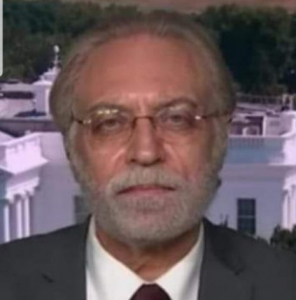A Bold Act of Unity for Syrian Christians
This article was originally published by Syrian Democratic Times on 18 April 2022. The original can be found here.
By Bassam Said Ishak President of the Syriac National Council, co-chief of the US Mission of the Syrian Democratic Council
Syriac Christians in Syria made a historic agreement this month. They laid aside their differences and declared a shared agenda of protecting and promoting religious and ethnic pluralism and human rights in Syria. As a persecuted religious and ethnic minority in Syria, they are now uniting around constitutional recognition of universal principles — ethnic and identity rights.
The Syriac Union Party (SUP) and the Assyrian Democratic Organization (ADO) issued a joint declaration on April 1, 2022, outlining common understandings and a joint plan of action. In the declaration, they demanded that the Syriac identity and language, the Aramaic language, be recognized as official in the new Syrian constitution. They officially adopted the Universal Declaration of Human Rights and related international agreements. They articulated a commitment to a decentralized governance model within a unified Syrian territory as the best way to protect diversity and equality while fostering the broadest possible participation of Syrians in managing their own communities.
This collaboration is groundbreaking, because the two parties who signed the agreement have wound up in different factions of the Syrian conflict. The SUP has been affiliated with the Syrian Democratic Council, the political arm of the Syrian Democratic Forces, who currently control roughly one-third of Syria, aligned with the Autonomous Administration of North and East Syria. The ADO has been affiliated with the Turkish-backed “Syrian National Coalition,” which currently controls Idlib and other territories.
Their common experience and culture helped them lay aside their differences. In the end, political alliances can be made due to pragmatic or existential reasons instead of actual alignment of belief. But as Syriac Assyrian people, we can find common ground. We were denied recognition as a people under years of rule by the Ba’ath ultra-Arab-nationalist ruling party. Conversational Syriac or Aramaic was only allowed in church mass services and only taught in certain private church-run elementary schools as part of a limited religious education. We had nowhere to go to learn or speak our Aramiac Syriac conversational mother tongue, the language spoken by Jesus.
Christians in the region were given the names Chaldean, Sumerian, Akkadian, Aramaic, Babylonian, Assyrian, and Syriac at different points in their long history as a continuous ancient people of Mesopotamia. No matter what they are called, the two parties declared: We are proud of all of these heritages and unite around our commonalities.
Since the beginning of the Syrian uprising in 2011, Syria’s Christians have been forced to flee the country in historic numbers. Before 2011, Christians were roughly 10 percent of the Syrian population. Now, their numbers have declined dramatically. Before we lose the last shards of our ancient people, we must continue to unite, or we will surely perish.
Religious freedom is a central demand by Syrian religious minorities. However, representatives of such communities limit their public demands to freedom of worship. Freedom of worship was never questioned by consecutive Syrian rules in modern Syria. The problem has been a political culture and policies that favored Muslims and contributed to the decline of the Christian presence in the country. The solution to this problem was only addressed by the Autonomous Administration of North and East Syria, which provides for its citizens the freedom to choose their religion. Without such freedom Syria cannot move past historical injustices toward a nation that provides freedom and dignity to all Syrians.
Bassam Said Ishak is a Syriac politician from Hasakah, a human rights advocate, former Executive Director of the Syrian Human Rights Organization (2004-2011), and founder and President of the Syriac National Council, a council representing the political opposition to the Baathist Assad regime. Bassam Said Ishak has been serving as the co-chief of the US Mission of the Syrian Democratic Council since 2018. You can follow him @bsishak

The views expressed in this op-ed are solely those of the author and do not necessarily represent those of SyriacPress.
























